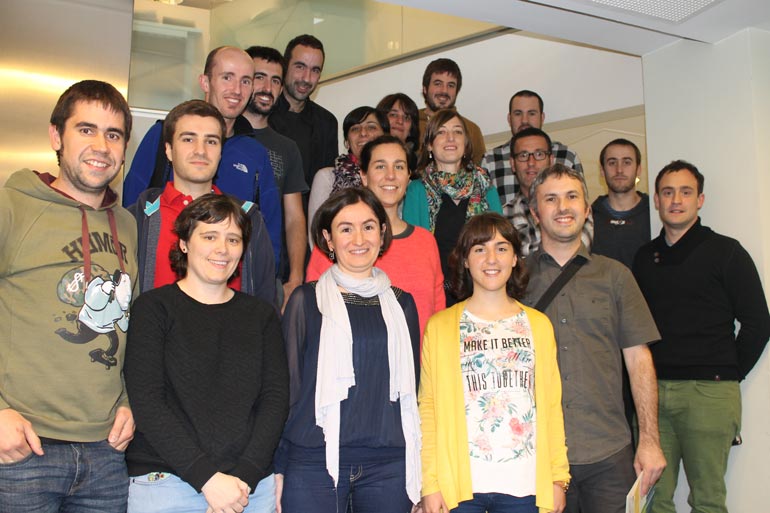Interview: Aitziber Elola, researcher at Orkestra-Basque Institute of Competitiveness

A while ago, in the meetings of Energia Mahaia, in Gipuzkoa Sarean, the need to carry out a diagnostic on the businesses in the energy sector in Gipuzkoa was identified. With this aim, the Provincial Council of Gipuzkoa, in conjunction with Orkestra, launched the “Training process for the analysis of the energy value chain" project.
The project had two goals. On the one hand, to offer participants a training process, through which they can acquire ideas, tools and skills that have enabled them to analyse the energy value chain in their respective regions. On the other hand, to provide support to regional experts for the execution of the global value chain in his/her region and the existing networks in the energy industry. Following the regional diagnostics, the Orkestra team's main goal was the analysis of the energy value chain throughout the whole of the region of Gipuzkoa.

In total, 9 seminars were organised. In the last one, held in June, the participants were able to present their projects.
To find out more about this learning process, the project, and the training sessions, Aitziber Elola was interviewed and her answered are gathered below.
What points have been worked on in the seminars held within the energy value chain project?
The points we’ve been working on in the different seminars have been channelled towards acquiring the tools and ideas needed to analyse value chains and the networks of the energy sector in each region. We arranged these ideas and tools in three blocks. In the first one, we worked on points related to competitiveness and value chains, which are: territorial development, value chain, cluster, business strategy and knowledge infrastructures. On the other hand, we dedicated various sessions to get closer to the energy sector. In this way we talked about the gas value chain and the electricity supply, the value chain of different energy-generating technology, and transport and distribution networks. Finally, we offered information on available databases and on some tools needed for the regional analyses: we completed a guide for interviews and we learnt how to use the Social Network Analysis software, among other things.
Have the seminars had an effect on the projects undertaken by the participants?
Without doubt, the work undertaken in the seminars has been extremely important for the projects. In fact, this was precisely the aim of the seminars: to enable its participants to carry out analysis of the energy sector's value chain. In each regional analysis, the participants have been applying the ideas and tools presented in the seminars.
The aim of the project was to carry out a mapping of the energy value chain in our territory. Has this been achieved?
The first thing was to carry out a regional mapping and upon completion of the regional analyses, we incorporated them and undertook the mapping of the whole territory. As regards to the regional analysis, we started with the available databases and business directories. With these details, the participants carried out a first mapping of the businesses in the energy sector in their respective regions. With this first mapping, they held interviews with businesses of the sector, in order to confirm it their activities really were related to the energy sector and in order to obtain more information on the company's activities, for example, what energy companies from the same region or other regions did they work with. Thus, we managed to produce the network maps. With all this information, the participants produced regional reports. In these reports they collected the mapping of the companies in the energy sector, along with their strengths and weaknesses. Starting with these individual regional reports, we carried out the mapping of Gipuzkoa and its overall report.
What are Gipuzkoa's strengths, in the energy sector? And in which direction should we move forward?
From all the information collected, we should underline various points. On the one hand, in our territory the majority of companies in the energy sector are from the subsector of energy generation, given that they are component providers of technology for the generation of wind power (onshore). However, there are companies that are diversifying their activity towards emerging technologies and positioning themselves towards these new technologies of the future. On the other hand, although important leading companies exist in the territory, the majority of these companies in the energy sector are small suppliers. There are very few companies situated in the upper reaches of the value chain. Looking towards the future, we should promote programmes that help us overcome the disadvantages owing to size and that help these companies to offer products of greater added value.
Finally, it must be highlighted that there are big differences between regions. In some of them, the presence of energy sector companies is significant, probably because of the existence of a leading company. In other regions, however, the energy sector has barely grown.












